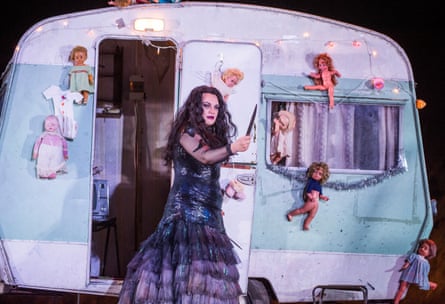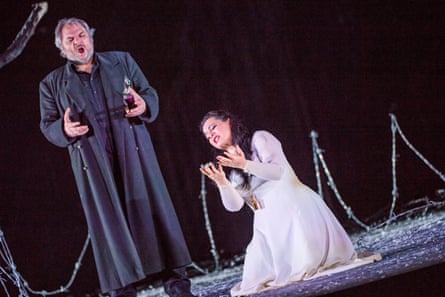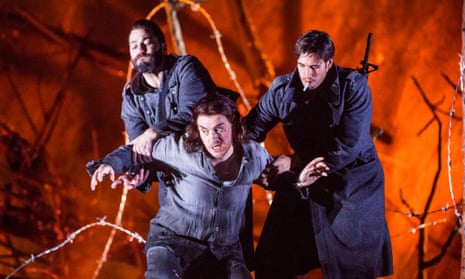Of the three all-conquering operas that Verdi wrote in quick succession in the early 1850s, Il Trovatore has become a bit of a Cinderella piece. While Rigoletto and La Traviata are pillars of every opera house’s repertoire, Trovatore has been reducing to a more problematic status than it once enjoyed.
It used to be said that all Trovatore needs is the four best singers in the world to perform it. But the real Trovatore problem is the difficulty of making a contemporary emotional connection to the opera’s blood-curdling story of cruelty, catastrophe and revenge in 16th-century Spain. You might think, in view of some of the world’s recent conflicts and wars, that this might not be hard, yet Azucena’s traumatic killing of her own child, which drives Verdi’s tragedy, somehow fails to connect as instantly as Rigoletto’s paranoia or Violetta’s victimhood.

The German director David Bösch, making his Covent Garden debut, is clearly aware of the problem. But his answer lacks conviction. Bösch sets the drama in a generalised present day — a tank rolls on and off stage as the armies gather, soldiers take selfies with their terrified prisoners, throats are viciously slit and Manrico heads off at the end of Di quella pira with a baseball bat-wielding gang of thugs. But the staging, especially Patrick Bannwart’s black-and-white set and video designs, subvert this attempt to take the story at something approaching face value. To reduce it to cartoons and caricatures might be a valid way of connecting with Trovatore, but putting the two together in this manner sends an artistically contradictory message that is at odds with the uninterrupted fervour of Verdi’s score.
To Covent Garden’s credit, this is an instantly serviceable production and the Royal Opera has not attempted to construct a new Trovatore around galáctico singers who may not be available at the moment. Instead, July’s opening performances are shared between two casts whose watchword, to judge from the first night, is reliability and teamwork. This is a Leicester City Trovatore rather than a Real Madrid version. And without pushing the analogy too far, Gianandrea Noseda’s unflashy and excellent work in the pit shows that an experienced Italian with confidence in his own methods can do the business.

Each of the four principals in the first cast brings something powerfully worthwhile, while not being in every way ideal. Francesco Meli’s Manrico is big-voiced, consistent and exciting, without quite the individual frisson that the role’s great moments cry out for. Lianna Haroutounian’s Leonora took time to relax into Verdi’s long legato phrases, but she sang with distinction and contributed a lot of spinto authority in the work’s many irresistible ensembles. Although Željko Lučić’s Count di Luna tired, there was the feeling that this can still be a really major voice, and his Il balen, not particularly Italianate, was a notable turn. Ekaterina Semenchuk’s Azucena was similarly full of possibilities, with a characteristically bright coloured Slav take on the role, and an incisive chest voice, but never quite putting the vocal or dramatic parts together in the way the role demands. Maurizio Muraro’s Ferrando was the stand-out among the smaller roles in an evening which showed how good Il Trovatore really is, while reminding us that it can also be even better.
- At the Royal Opera House, London, until 17 July. Box office: 020-7304 4000.

Comments (…)
Sign in or create your Guardian account to join the discussion